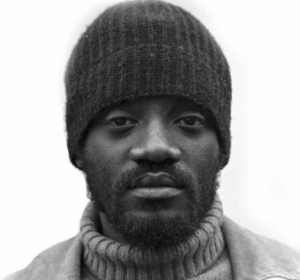October 29, 2021

Black History Month Time Capsule 4: Darcus Howe – who taught lawyers to be humble and willing to learn from the communities we advise
To mark Black History Month some of our lawyers have written letters to future lawyers spotlighting the work of one of their inspirations from the black legal or activist community. The letters will be put into a Time Capsule and buried in our garden for future generations of Wilson’s lawyers to dig up and read one day
Here is the fourth from our Nandini Mitra a caseworker in our Public Law Team.
Dear Future Lawyer,
I write to you from the year 2021: a year that has been marked by solemn remembrances and urgent calls for change. Whilst the contemporary feels riven by stark social, political, economic and ecological crises, it has been common practice for people to look to the past for lessons learned, and to begin sketching a roadmap for the future. Whilst I hope that things will have greatly improved by your time, I hope history remains valued as a means of informing moves towards progress.
Oftentimes, history doesn’t present such lessons neatly. Skills of fact-finding, placing facts in situ, interrogating contexts, and following lines of enquiry are core skills needed to understand the past. They’re also pretty essential for anyone in the legal profession. But, in my view, to be a great lawyer, another attribute is even more important – and I turn to Darcus Howe, and history, to explain why.
2021 marks 40 years since the New Cross Massacre: a tragedy in which 13 young Black people were killed in a suspected racist arson attack at a house party on 18 January 1981 (a 14th victim died by suicide soon after the event). Despite two inquests, four decades’ passing, 14 immediate victims and generations wanting answers, justice for the 14 young Black people has yet to be won.
The New Cross Massacre is considered a flashpoint in British political and social history. The Metropolitan Police appeared reluctant to seriously investigate contemporaneous neo-Nazi violence as a cause of the fire, instead blaming the victims as drunken, disorderly partygoers. The media barely reported on the tragedy, and the response of the great halls of power was insultingly lacking.
In the face of this, scores of Black Britons rallied. Darcus Howe and the Black Parents’ Movement were among the first to meet with the bereaved, to raise awareness of the Massacre via the Black Londoners BBC Radio programme, and to hold a meeting with the community soon after the fire. The organisers expected a maximum of 80 people might show up. To their surprise, over 300 people attended that first meeting, from which the New Cross Massacre Action Campaign (NCMAC) emerged. From this campaign came the National Black People’s Day of Action, when 20,000 people from all over the UK marched from the scene of the fire to the Houses of Parliament, where they presented a petition demanding for a robust investigation into the attack.
From its formation, Darcus – a Middle Temple-dropout, British Black Panther, writer and political commentator – was integral to the NCMAC. In the lead-up to the Day of Action, he travelled around the UK, holding meetings across the country to raise awareness of the Massacre. He tried to encourage enough people to engage and take action. For Darcus, effective political organising was somewhat of a network effect: you spoke with one person, who would go on to engage six others on the issue. Yes, the vast majority of those people may not act on such engagement, but no matter; the point is to keep persisting in the hope that, eventually, the mobilised minority will swell, strategise and win. The success of Darcus’s theory can be seen not only in the numbers of people who marched on the Day of Action, but also in the activities of organisers, communities, and – yes – lawyers in the immediate aftermath of the fire, and thereafter.
He was deeply sceptical of institutional power, including that of the British legal system. He had represented himself at the trial of the Mangrove Nine, having been wary of legal practitioners paying insufficient regard to the state’s criminalisation of Black existence in Britain. With this knowledge of the systemic biases at play in the courts, he was not surprised when the first inquest into the New Cross Massacre laid bare not only deficiencies in the Met’s investigation, but also issues that had been both persistent and unique to the coroner’s courts in particular. Following the jury’s return of an open verdict in the first inquest, the NCMAC campaigned against such structural issues in coroner’s courts, linking the injustice of the Massacre with campaigns for reform of the British legal system, particularly with regard to accountability mechanisms for suspicious deaths, including those that occur in state custody. Laws, courts, the judiciary – Darcus knew that these were not enough. Darcus was committed to the power of community efforts for accountability and lasting change.
Darcus teaches legal professionals that we have to be humble. As much as lawyers are trusted advisors for their clients, and often helm social progress, they are not the sole architects of a peaceable commons, or the lone defenders of our rights. In my view, the best public, human rights and civil liberties lawyers know that learning directly from communities at the sharp edge of state marginalisation is both a form of client care and informs our practice for the better. If you want to do good, and be a good lawyer, you have to be willing to learn from the clients and communities you will advise. Doing so will enrich your capacity to effect meaningful change, together.
Good luck and best wishes,
Nandini
If you have a family law case you need assistance with, please contact Mavis on 020 8885 7986 to arrange for an appointment with a solicitor in the family team.